the evolution of artificial intelligence in manufacturing: transforming industries through innovation
INTRODUCTION
In the recent decades, the integration of Artificial Intelligence (AI) in the manufacturing sector has led to an unprecedented transformation, revolutionizing the way goods are produced and processed are optimized. The emergence of AI technologies has profoundly impacted various stages of manufacturing, from design and production to supply chain management and predictive maintenance. This amalgamation of AI and manufacturing has created a new era of efficiency, accuracy, and innovation. In today’s rapidly evolving landscape of industrial production, Artificial Intelligence (AI) stand as a revolutionary force transforming the very core of transforming. With its capacity to optimize processes, enhance efficiency, and enable predictive maintenance, AI has become the linchpin of modern manufacturing, revolutionizing every stage of production cycle. Through advanced data analysis, machine learning, and robotics, AI is not only streamlining operations but also paving the way for unprecedented levels of precisions, productivity, and innovation within the manufacturing sector.
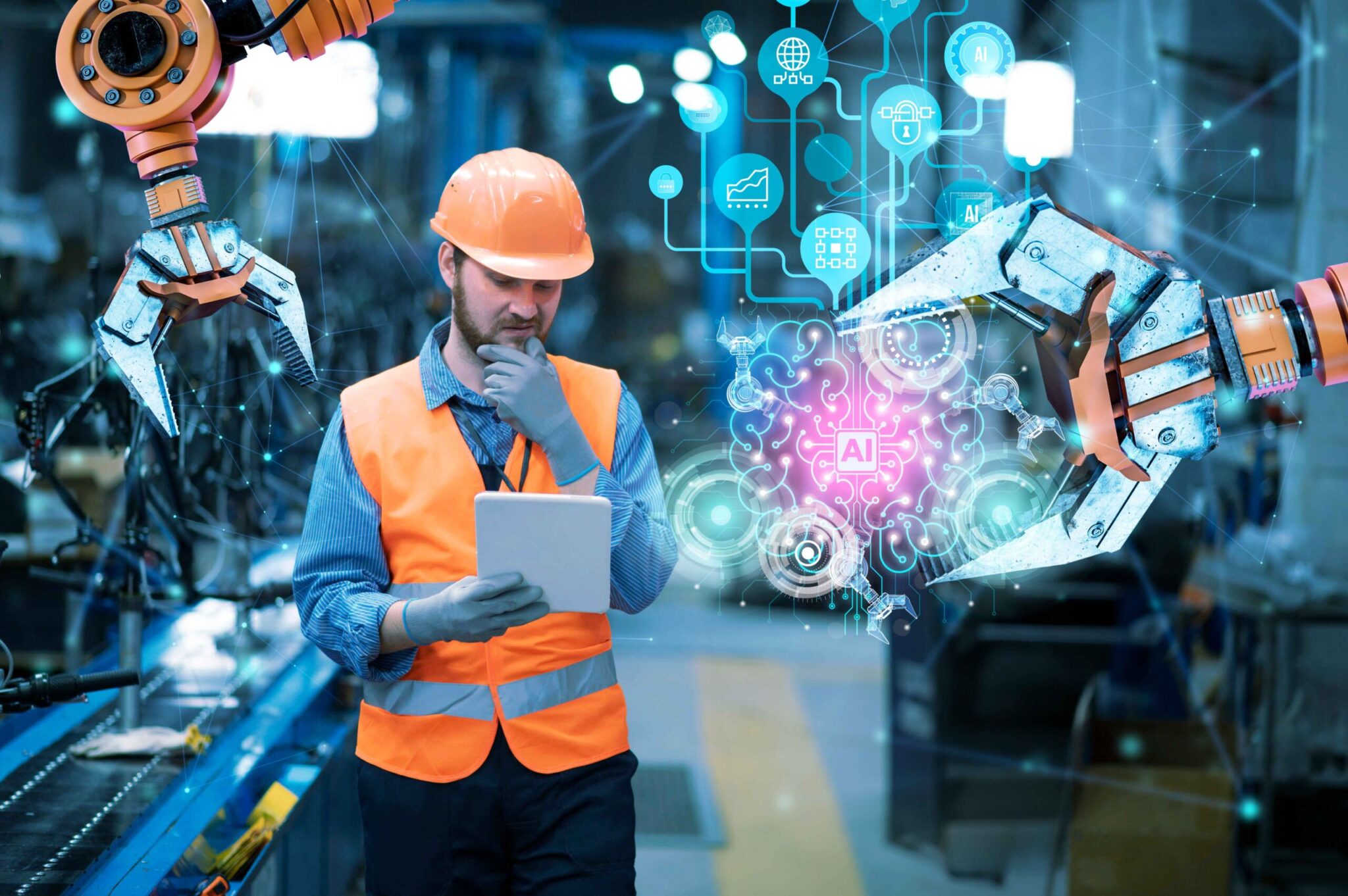
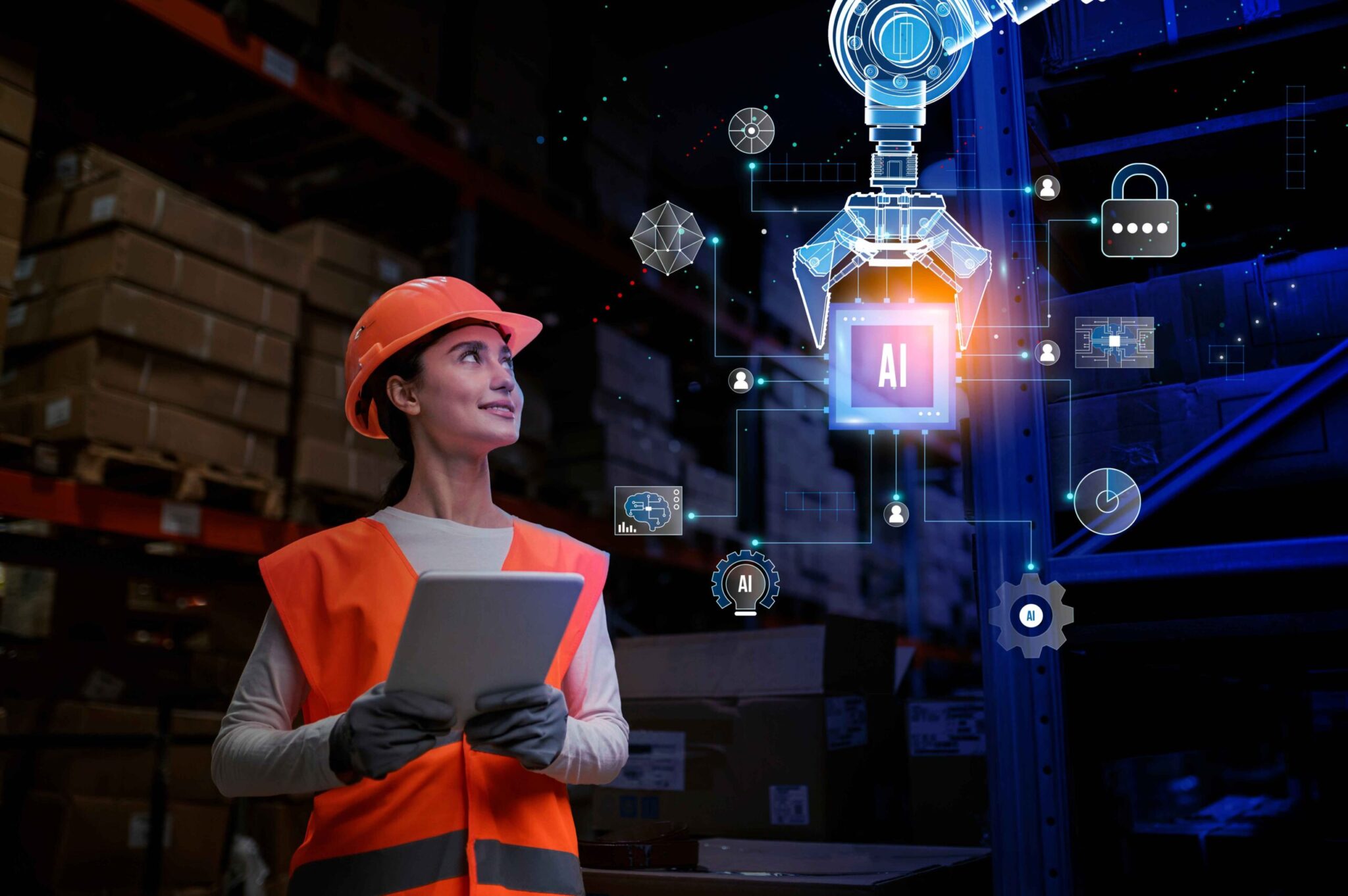

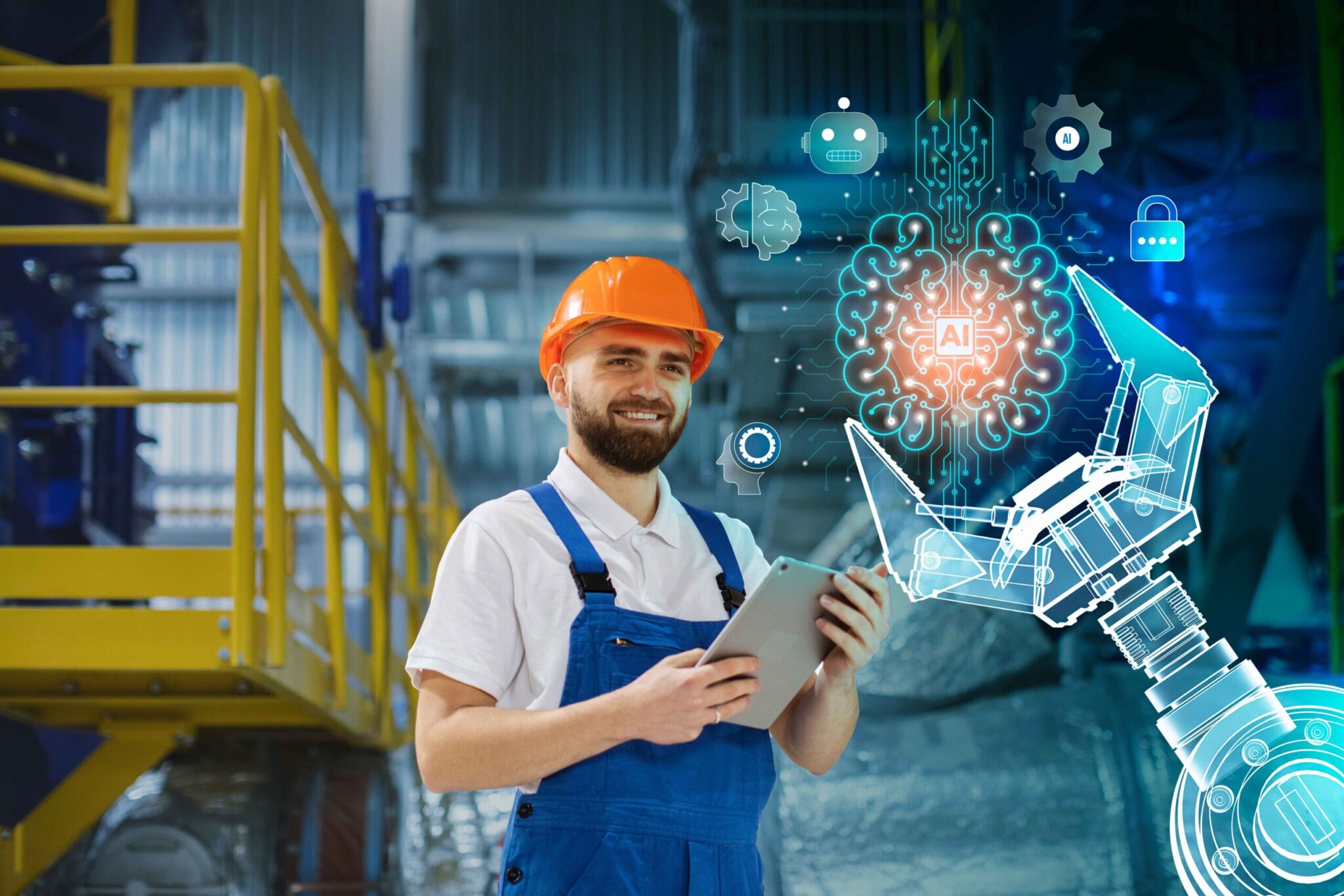
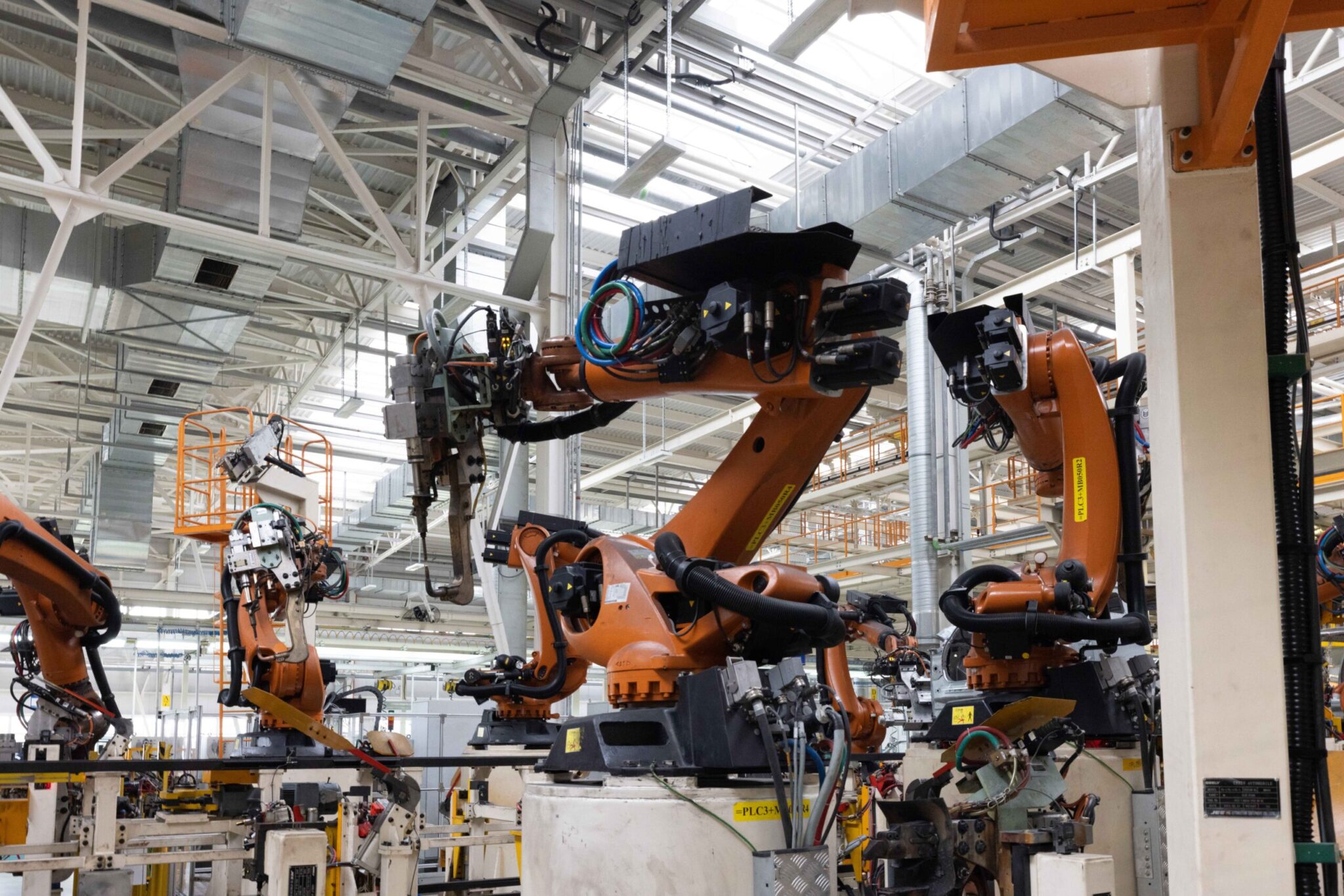
AI's Role in Manufacturing
The application of AI in Manufacturing has significantly advanced operations, facilitating the automation of complex tasks that were once reliant on human intervention. The utilization o AI-Powered system has streamlined and improved numerous aspects within the manufacturing domain.
Predictive Maintenance:
AI-Driven predictive maintenance systems have been a game changer for the manufacturing industry. By analyzing data from sensors and machinery. AI algorithms predict when equipment is likely to fail, allowing proactive maintenance to prevent costly downtime. Predictive maintenance is powered by Artificial Intelligence (AI) is emerged as a transformative approach in the realm of maintenance within various industries, particularly in manufacturing, aviation, and utilities. The innovation strategy harnesses the capabilities of AI, machine learning, and data analytics to anticipate equipment failures before they occur, enabling proactive measures that prevent costly downtime and unplanned outstages.
Quality control and Assurance:
AI technologies, such as machine learning algorithms, have the capability to detect defects and anomalies in real time during the production process. Through image recognition and data analysis, AI system ensures higher product quality and reduce errors significantly. In the domain of maintenance, quickly control and assurance have undergone a profound evolution in the integration of Artificial Intelligence (AI). AI powered system have revolutionized the traditional methods of ensuring product and process quality by offering advanced capabilities in predictive analysis, anomaly detection, and real-time monitoring. By leveraging machine learning algorithms and data analytics, AI in quality control and assurance brings a new level of precision, consistency, and efficiency to the identification and mitigation of defects, deviations, and potentials issues in manufacturing and operational processes.
Supply Chain Optimization:
Supply chain optimization has reached unprecedented levels of efficiency and adaptability with the integration of Artificial Intelligence (AI) in maintenance practices. AI’s impact on supply chain management is revolutionary,offering sophisticated tools for proactive analytics, demand forecasting, and inventory management. By leveraging machine learning algorithms and data analytics, AI in supply chain management enables real time insights allowing for proactive decision making to streamline logistics, reduce operational costs, and enhance overall efficiency. This transformative technology not only fosters better resource allocation and inventory control but also facilitates agile, responses to dynamic market demands ultimately ensuring a more resilient and adaptable supply chain ecosystem.
Product Design and Prototyping:
The Convergence of Artificial Intelligence (AI) in the realm of product design and prototyping has marked a profound revolution in the way innovation are conceptualized, developed, and brought to market. AI technologies have fundamentally transformed the traditional processes of design and prototyping, offering advanced capabilities in ideation, modeling, and simulation. Through machine learning algorithms, predictive analysis, and generative design, AI in product design and prototyping enables unprecedented levels of creativity, efficiency, and precision. This integration empowers designers and engineers to explore numerous design iterations, optimize concepts, and predict performance, thereby accelerating the development cycle and significantly reducing time to market.
Process Automation:
The advent of Artificial Intelligence (AI) in process automation has heralded a new era in maintenance, revolutionizing the way industries streamline and manage their operational workflows. AI-Driven process automation leverages machine learning, robotics, and data analytics to optimize and orchestrate complex tasks, workflows, and system. Identifying patterns, predicting maintenance needs, and autonomously executing routine functions, AI ensures greater operational efficiency, reduced downtime, and enhance productivity. this integration of AI in maintenance process automation not only transforms the way tasks are manage but also enables a proactive, adaptable, and responsive approach that revolutionize the maintenance landscape across various industries.
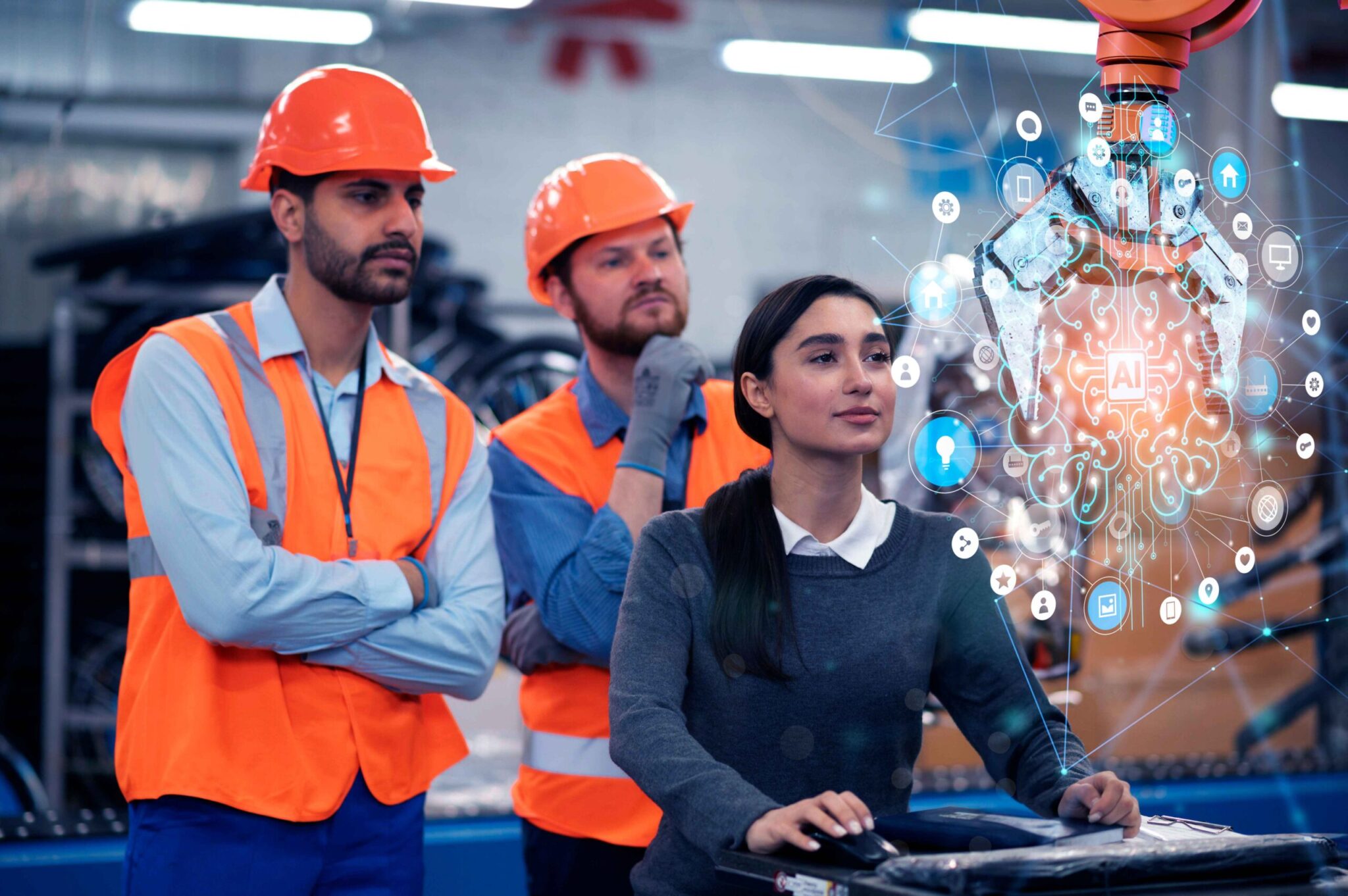
Challenges and Opportunities
The infusion of Artificial Intelligence (AI) into the realm of maintenance brings a forth of landscape defined by a myriad of both challenges and opportunities. While the implementation of AI promises transformative capabilities, it also presents hurdles that range from ethical considerations and data privacy concerns to the potential displacement o jobs. Simultaneously, this integration offers unparalleled opportunities in the terms of operational efficiency, cost savings, predictive analytics, and enhanced decision making processes. It’s delicate balance between harnessing the vast potential of AI to revolutionize maintenance practices and addressing the multifaceted challenges that comes with it, including ensuring ethical AI use, upskilling the workforce, and mitigating the risks associated with overreliance on technology. The intersection of challenges and opportunities within AI in maintenance delineates a complex yet promising path towards a future where innovative technology reshapes industries while demanding a judicious and proactive approach to navigate these multifaceted applications.
While AI in manufacturing present a multitude of opportunities, it also poses several challenges. Cybersecurity concerns, data security and the integration of AI with existing system are some of the most prominent issues. Ensuring the seamless integration of AI technologies within manufacturing processes without disrupting the current workflow is an ongoing challenge. However, these challenges come hand in hand with tremendous opportunities, The potential for increased productivity, reduced operational costs, minimized waste, and improved worker safety positions AI as a cornerstone for future manufacturing advancements.
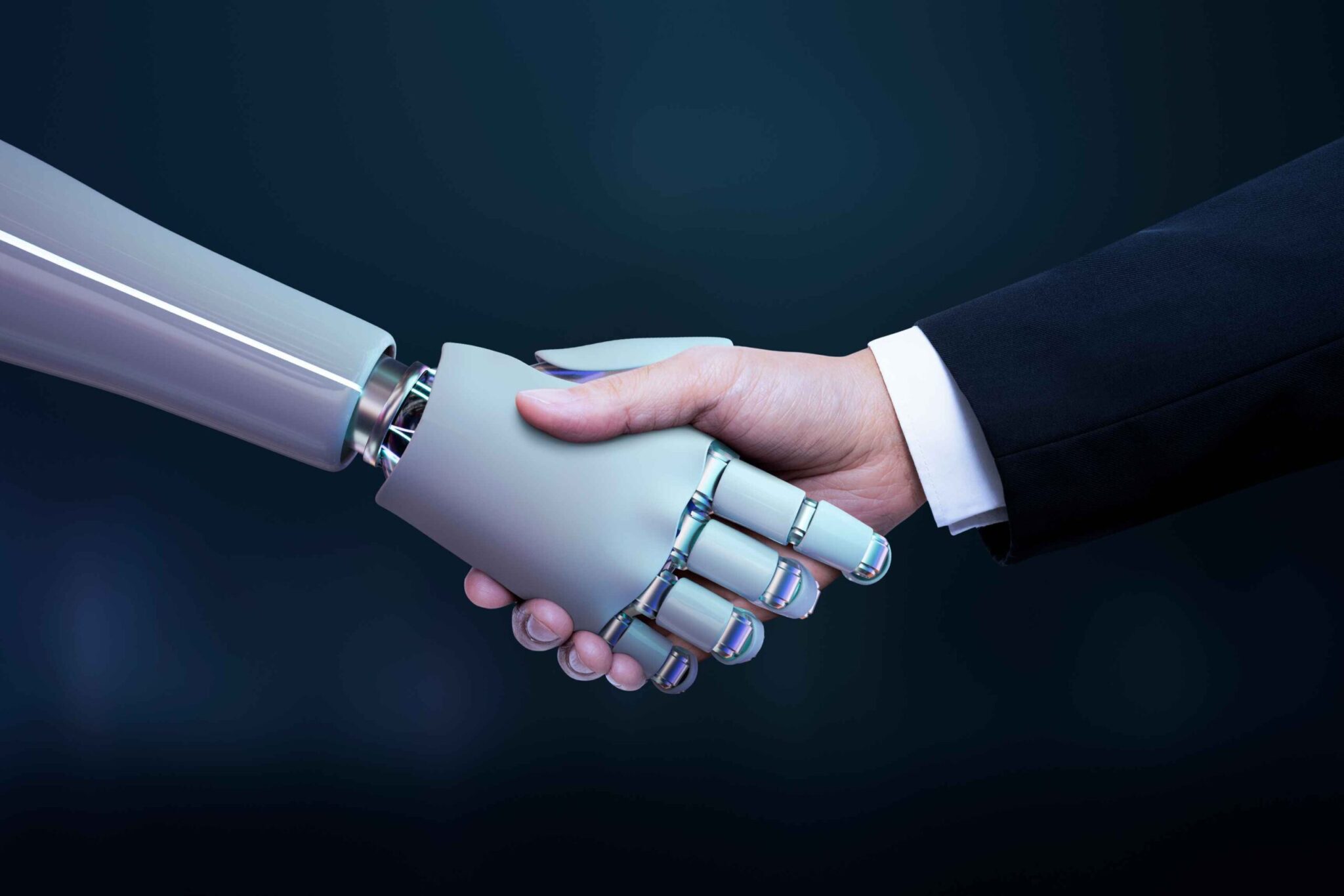
Human-Machine Collaboration
Human-Machine Collaboration is the context of AI-driven maintenance represent a paradigm shift in the traditional roles of human workers and intelligent technology. As AI continues to evolve, it becomes an indispensable tool in maintenance, offering predictive insights, automation, and data-driven decision making. However, the true potential lies in the synergy between human expertise and AI capabilities. The collaboration between humans and machines in maintenance fosters a dynamic ecosystem where human intuition, creativity, and contextual understanding complement the computational power and analytical strength of AI. While machines excel in processing vast amount of data and executing repetitive tasks with precision, human workers bring critical thinking, adaptability, and problem solving skills to navigate complex, unstructured scenarios. This collection optimizes efficiency, allowing humans to focus on higher-order tasks innovation and strategic decision making, while AI handles repetitive and data intensive processes.
The Crux of successful integration lies in leveraging the strength of both, thereby not only enhancing the efficiency of maintenance operations but also cultivating a harmonious and productive relationship between human and AI in the workplace.
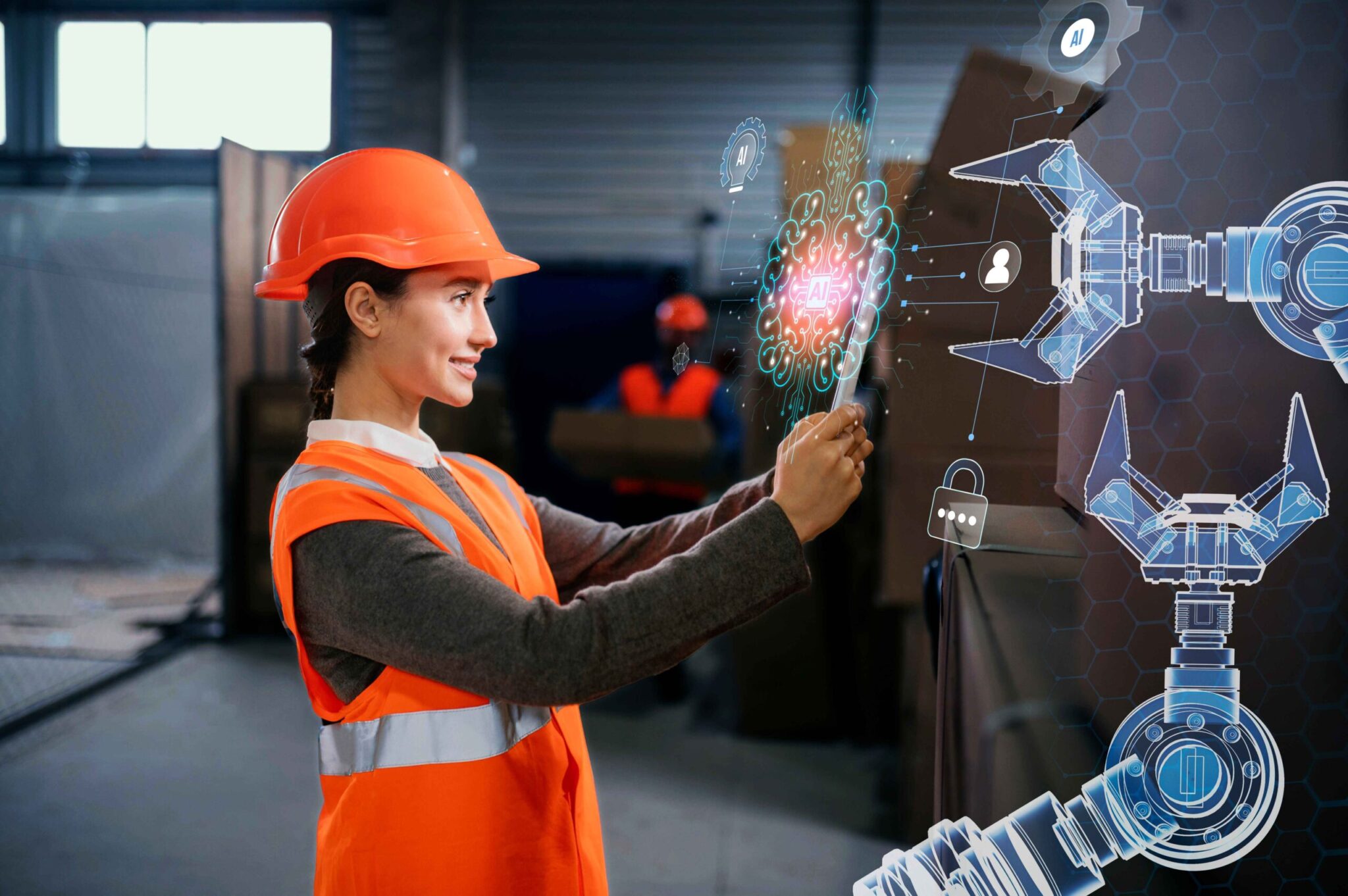
The Future of AI in Manufacture
The future of AI in maintenance is promise a landscape where intelligent technologies will continue to be driving force behind innovation, efficiency, and transformation. AI’s integration within manufacturing processes will further evolve, expanding its role beyond predictive analytics and automation to become more adaptive, responsive, and autonomous. Advanced machine learning models will enable factories to learn and adapt in real-time optimizing production based on dynamic demand and unforeseen variables. Robotics and AI-Driven system will collaborate seamlessly, enhancing safety and productivity, on factory floors. Furthermore, AI’s predictive capabilities will become more sophisticated allowing for preemptive maintenance, thus reducing downtime and ensuring uninterrupted production. Ethical consideration and responsible AI usage will be paramount, ensuring that AI system in manufacturing operate ethically and in alignment with human values.
Overall the future of AI in manufacturing signifies the convergence of innovation and human expertise, where intelligent technologies become integral in driving unprecedented levels of efficiency, sustainability, and competitiveness in the global manufacturing landscape.



